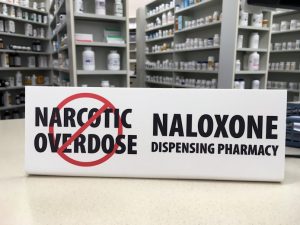Open Letter: OJJ, Football, and Children
PDF Version: Open Letter: OJJ, Football, and Children An Open Letter to Members of the Louisiana State Legislature When Deliberating… Read More
 Bad enough for parents, parental opioid abuse is especially harmful to children and has lifelong consequences for them including removal from the neglectful care of their parents. Across the country and in Louisiana, the opioid epidemic is swelling the number of foster children.
Bad enough for parents, parental opioid abuse is especially harmful to children and has lifelong consequences for them including removal from the neglectful care of their parents. Across the country and in Louisiana, the opioid epidemic is swelling the number of foster children.
Recent headlines tell the tragic story.
“Why America’s Babies Are Suffering: Opioid Addictions Placing More Babies In Foster Care“, 04/20/2017
“Opioid crisis strains Massachusetts’ foster-care system“, March 27, 2017
“More than 2,000 Cuyahoga children in foster care, highest since 2011, thanks to opioid crisis“, May 15, 2017
“Opioid epidemic leads to foster care crisis in many states“, 12/28/16
“Opioid epidemic leaving more children in Alabama’s foster care system“, 5/28/2017
“Opioid epidemic strangles Baltimore, pours more children in foster care“, 6/8/17
“The Children of the Opioid Crisis“, 12/15/16
“Foster kids: Major jump due to heroin epidemic“, 5/14/17
You get the idea. The opioid epidemic is increasing the number of children placed in foster care.
Recently, I shared with a friend that 80% of children who enter Louisiana’s foster care system do so for reasons of neglect rather than physical abuse. (80% for neglect, 15% for physical abuse, and 5% for sexual abuse.)
My friend asked if I had seen Trainspotting, a movie from the mid 1990’s, and I told him I had not. He said it is a hard movie to watch. In his words: “very disturbing and filled with depravity”. He described scenes showing the consequences of parental neglect.
I watched the movie this past weekend. “Disturbing” and “depravity” are understatements. It relates the story of a small group of heroin addicts in the late 80’s or early 90’s. The story details the consequences of their heroin addictions – illness and disease, loss of moral compass, criminality and incarceration, loss of self-esteem and self-respect, loss of freedom, loss of employment, loss of family, loss of life, and – hardest of all – the death of a baby.
The neglected baby dies in her crib while her parents are intoxicated on heroin. After rising from her heroin-induced absence, the mother finds her baby dead and swollen. It is a hard scene to watch. Parents who are absent due to drug abuse are as absent as if they put their child in a crib and then left town.
As disturbing as this movie is, it depicts precisely why Louisiana’s growing opioid epidemic is so dangerous for children, especially infants. Opioid abuse leads to serious neglect.
A mother or father who is tripping on heroin intoxication or who is absent due to other opioid abuse cannot respond to a hungry or thirsty baby. Parents lost in substance abuse cannot care for their children. In altered states, they cannot be present for bonding, for changing diapers, for comforting, or for feeding.
The Louisiana Department of Health’s Office of Behavioral Health employees are actively expanding their efforts to intervene and are working to address “prescription opioid abuse”. A special section of the Department’s website focuses on the opioid epidemic at Opioids: The Problem and Challenge in Louisiana.
LDH has issued a Statewide Standing Order permitting Naloxone and other opiod antagonists to be available to first responders, caregivers, family and friends as a countermeasure to opioid overdose.
In addition to the Naloxone Standing Order, Louisiana Department of Health has received an $8.1 million federal grant to help address Louisiana’s opioid crisis. According to Louisiana Department of Health statistics, Louisiana averages 122 opioid prescriptions for every 100 people. Louisiana Department of Health reports the grant funds “will be used to enhance existing statewide prevention, treatment and recovery services that are available to individuals who are addicted to opioids or who are at risk for opioid addiction or opioid abuse or misuse.”
For the sake of Louisiana’s children, these efforts must be successful. Godspeed, LDH!
Rick Wheat, President and Chief Executive Officer
Louisiana United Methodist Children and Family Services